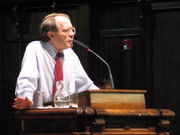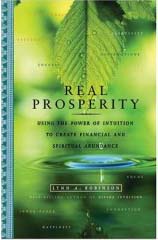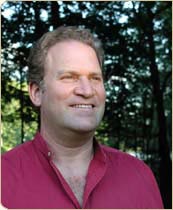 On Sunday, my younger son sang with his school chorus to some 3,000 Montessori teachers, all here in New York City for their annual meeting. The performance went just fine. But then our whole family stayed on for the keynote address given by Jonathan Zozol, the country’s angriest and most influential public education critic, most recently the author of “The Shame of the Nation: The Restoration of Apartheid Schooling in America.”
On Sunday, my younger son sang with his school chorus to some 3,000 Montessori teachers, all here in New York City for their annual meeting. The performance went just fine. But then our whole family stayed on for the keynote address given by Jonathan Zozol, the country’s angriest and most influential public education critic, most recently the author of “The Shame of the Nation: The Restoration of Apartheid Schooling in America.”
I was worried that our 10-year-old wouldn’t want to sit through a full speech on the wretched state of American public education. But I didn’t know how effective an address Kozol can give. By the end of the hour, both my kids and two of their friends were among the throngs of people standing to give Kozol a huge standing ovation.
My sons sometimes complain that our Montessori school rushes lunch, and doesn’t allow much recess (giving them modern dance, drama, and ceramics instead). But I was pleased to see that the Kozol address helped my kids appreciate something I’ve been telling them all along but that they couldn’t get until they heard it from someone else: that their school is a palace of enlightenment compared to the schools in America’s poorest neighborhoods where classes are overcrowded, books are in short supply, kids are over-tested, and teachers are stressed to a breaking point.
I tell my kids, “Listen, the world needs you to be good people. The world requires your leadership.” I don’t want to “lay a trip” on them, or make them think that life is all responsibility and no fun. They are, after all, still young. But since they are the beneficiaries of all the good the world can offer, since Mr. Chattering and I daily knock ourselves out to give them a nice life, I think they should grow up with the expectation that they will be required to give something back to the world in return. How do you convey this lesson to your kids?
A little web research reveals that Kozol has essentially been giving the same address for several years. Here’s audio of a speech that repeats several of the same stories we heard on Sunday, and sticks to the theme of America’s educational inequities.
And here’s a portion of another speech in which Kozol speaks to the importance of religion–in his own life and in the public square. He has advanced the cause of moral education throughout his career, and thinks children should be allowed to discuss religious ideas in school. He says that leaving the language of faith out of the inner-city school systems is like tearing the soul of the people out. As you see from what he says here, Kozol–who was a close friend of the late Fred Rogers–is a key member of the emerging “Religious Left.”
He has said, “I talk a lot about religion, and many of my old friends in the press, some who have known me since college days, find this bewildering. Some of my friends from Harvard even look at me clinically when I talk about religion. That used to happen when I was at Harvard, too. I lived, God help me, in a place called Eliot House, where people were so self-consciously sophisticated that if you said you believed in God, they would give you a funny look — as if maybe you needed to go to health services. I find this very troubling. A lot of sophisticated people, particularly northeastern liberals, have been far too patronizing on this subject. By steering away from anything that has to do with religion or morality or ethics, many of us who view ourselves as liberals have left a tremendous vacuum that has been filled skillfully by people on the far right, like the Christian Coalition. This is our fault.
“You can’t even start to speak about a place like the South Bronx if you don’t speak about religion. I don’t mean writing seasonal stories at Easter or Christmas. Perhaps, I ought to use a word like faith. Faith in the real sense. That is intimately linked to what led me to the South Bronx. I didn’t go there, initially, to write a book. I went there because I was morally and emotionally exhausted. Although I couldn’t have said so at the time, I went in search of my own salvation. I felt that I was dying on the flatlands of political exhaustion, euphemism, and abstraction. Particularly, in the world of education, I got sick of dehumanizing, business-minded jargon like downsize, restructure, privatize, decentralize, and hyphenated doublespeak like outcome-based-instruction.
“I felt like a thirsty person who was being given a glass of sand to drink. When I went up to the South Bronx, I wanted to find strength, something to restore my soul. The irony is that I should have found it in one of the poorest places in the world. It came from children. It came from grandmothers.”
If you want to learn more about this fascinating and important man, click here.

